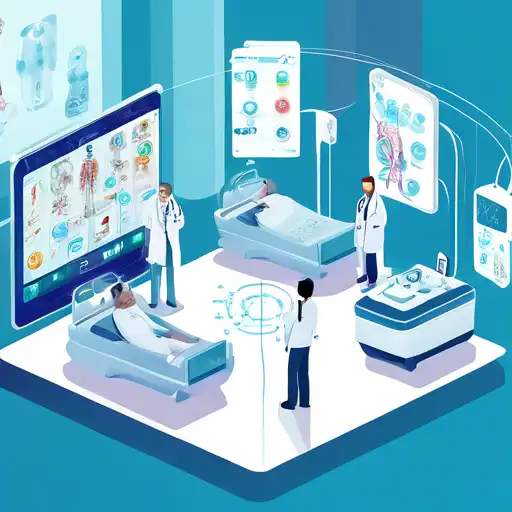Introduction to IoT in Healthcare
The integration of the Internet of Things (IoT) in healthcare is transforming the way medical services are delivered. By enabling devices to collect, analyze, and transmit health data in real-time, IoT technologies are improving patient outcomes, reducing costs, and enhancing the efficiency of healthcare services.
The Benefits of IoT in Healthcare
IoT in healthcare offers numerous benefits, including but not limited to:
- Improved patient monitoring through wearable devices
- Enhanced drug management with smart pills
- Reduced hospital readmissions with remote monitoring
- Increased operational efficiency in healthcare facilities
These advancements are not only making healthcare more accessible but also more personalized.
Challenges and Solutions
Despite its benefits, the adoption of IoT in healthcare faces several challenges, such as data security and privacy concerns. However, with the development of advanced encryption methods and strict regulatory compliance, these challenges are being addressed to ensure patient data is protected.
Future Prospects
The future of IoT in healthcare is bright, with ongoing innovations aimed at further improving patient care. From AI-powered diagnostics to blockchain for secure data sharing, the potential for IoT to revolutionize healthcare is immense.
For more insights into how technology is shaping the future of healthcare, explore our digital health trends article.
Conclusion
IoT in healthcare is indeed a game changer, offering unprecedented opportunities to enhance patient care and operational efficiency. As technology continues to evolve, the integration of IoT in healthcare will undoubtedly lead to more innovative solutions that will further transform the industry.
